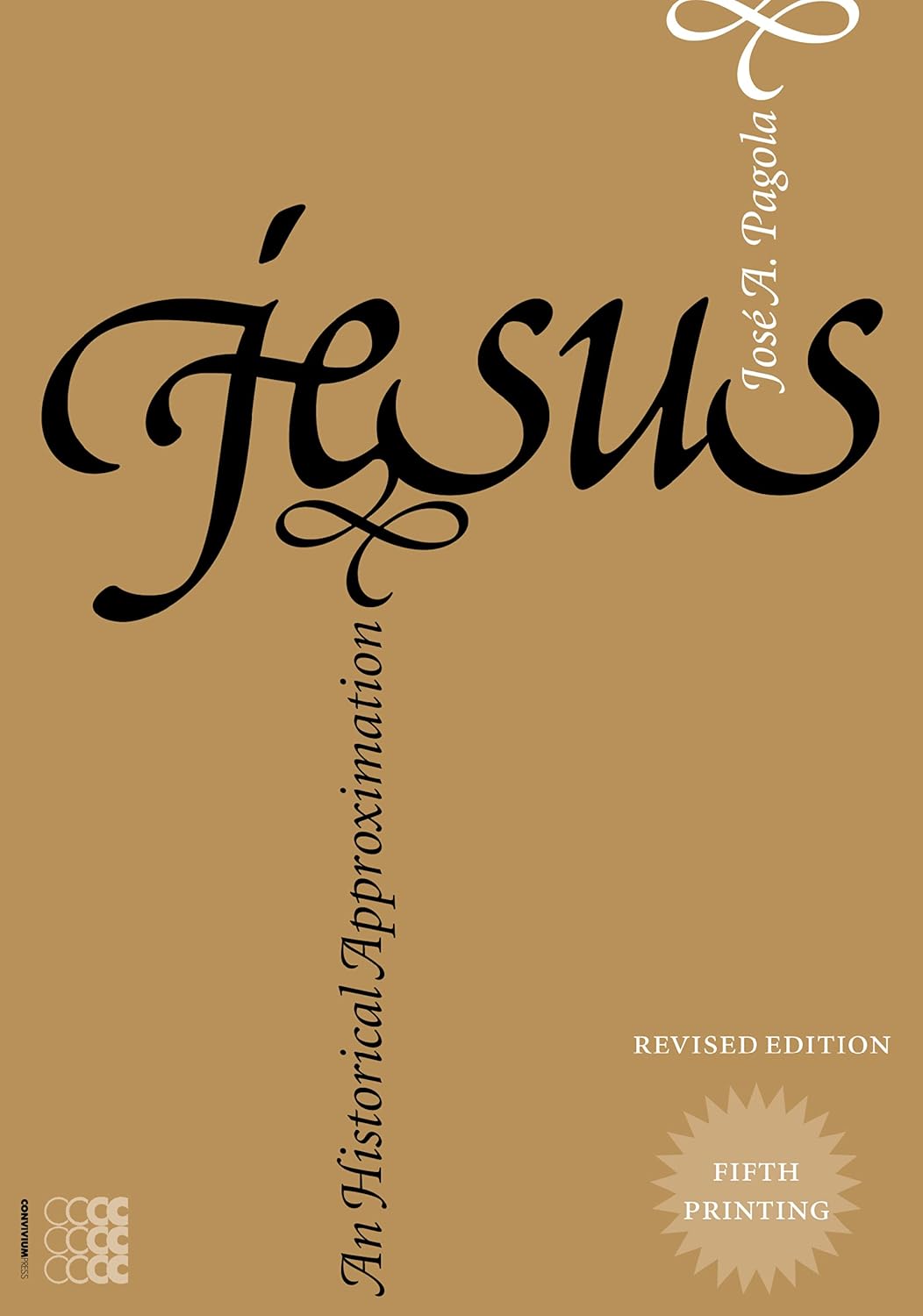Book review: Jesus, An Historical Approximation
Jose A. Pagola
★★★★★
Who was the Jesus of history? A wandering sage? A penniless do-gooder? An apocalyptic preacher?
If you’re tired of all the one-dimensional labels and want to find the real Jesus, this is the right book. Pagola begins by affirming his devotion to the Catholic Church, and his analysis overemphasizes canonical scripture just as one would expect of a confessing Christian, but this is not a book about the “Christ of Faith.” While resorting to neither evangelism nor sensationalism, Pagola tells the simple story of a very human Jesus, his beliefs, dreams, ambitions, and values. I’m well-read on the topic of the historical Jesus, and I have to say, I am very impressed by the picture Pagola paints. This is about as down-to-earth as any exposition of the life of Jesus I’ve ever read. Any more down-to-earth would be dishonest, for Jesus truly was exceptional. The result may be the most inspiring book I’ve ever read about Jesus.
This is a Jesus who desperately wants his audience to embrace what he calls the reign of God, or the kingdom of God, and who gently teaches in parable and example how it can come about. It’s a historical Jesus that is, finally, believable and consistent with the picture provided in both scripture and history. It is a Jesus we can both love and admire. A Jesus whose teachings might actually explain the following that sprang up after his death. But still a very human Jesus, with real problems.
“Jesus put the honor of his family at risk when he left. His vagabond’s life, far from home, without fixed employment, performing exorcisms and strange healings, and proclaiming a disturbing message without authorization, brought shame to the whole family.”
Clearly, this book is not about Christianity. Not until the final pages of the book does Pagola discuss the religion which sprang up in Jesus’ name, or the apocalyptic expectations that arose through messianic dreams, and that short discussion of the post-resurrection Jesus may be the only place where I disagree much with Pagola’s research, finding it too simplistic. He gives the impression (perhaps not intentionally) that the meaning of Jesus’ life and resurrection were interpreted similarly by all early followers. Elsewhere, whenever Pagola’s view differs from my own, his view is the one leaning toward the consensus of other scholars, and I guess that’s a good thing. I’d put it like this: Pagola has carefully extracted the meat from contemporary Jesus scholarship and flavored it with common sense.












 354 Circles
354 Circles
 603 Goodreads Friends & Fans
603 Goodreads Friends & Fans

 Hello! I'm an author, historical Jesus scholar, book reviewer, and liberal Christian, which means I appreciate and attempt to exercise the humanitarian teachings of Jesus without getting hung up on any particular supernatural or religious beliefs.
The Bible is a magnificent book that has inspired and spiritually fed generations for thousands of years, and each new century seems to bring a deeper understanding of life’s purpose. This is true of not only Christianity; through the years, our age-old religions are slowly transforming from superstitious rituals into humanitarian philosophies. In short, we are growing up, and I am thrilled to be riding the wave.
I avidly read all thought-provoking religion titles. New authors: I'd love to read and review your book!
Hello! I'm an author, historical Jesus scholar, book reviewer, and liberal Christian, which means I appreciate and attempt to exercise the humanitarian teachings of Jesus without getting hung up on any particular supernatural or religious beliefs.
The Bible is a magnificent book that has inspired and spiritually fed generations for thousands of years, and each new century seems to bring a deeper understanding of life’s purpose. This is true of not only Christianity; through the years, our age-old religions are slowly transforming from superstitious rituals into humanitarian philosophies. In short, we are growing up, and I am thrilled to be riding the wave.
I avidly read all thought-provoking religion titles. New authors: I'd love to read and review your book!
 Hi! While Lee writes the articles and reviews the books, I edit, organize, and maintain the blog. The views expressed here are Lee's but I'm his biggest supporter! :-)
Hi! While Lee writes the articles and reviews the books, I edit, organize, and maintain the blog. The views expressed here are Lee's but I'm his biggest supporter! :-)
Ugh, please forgive the utter irrelevance of what I’m about to say, but I could never buy a book with the words “An historical” in the title (instead of “A historical).
I know that “An historical” is considered proper, but some rules in the English language are just so idiotic that adhering to them is a crime against common decency.
The rule states that “a” should be used before words that begin with consonants while “an” should be used before words that begin with vowels. Notice, however, that the usage is determined by the pronunciation and not by the spelling.
You should say, therefore, “an hour” (because hour begins with a vowel sound) and “a history” (because history begins with a consonant sound).
The Interpreters got it wrong on this occasion but maybe the publishers will correct it if the book is ever re-printed